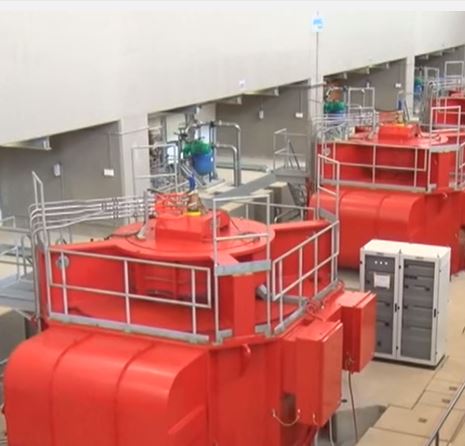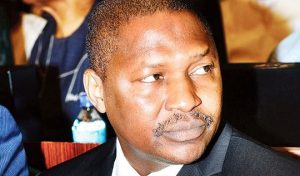
Leadership / Nigeria: As the Nigerian economy slips further into recession, manufacturers in the country say their production level has dropped by 20 per cent, blaming dollar scarcity, declining purchasing power, fuel scarcity and infrastructure challenges for their woes.
The manufacturing sector, which had become the driving force of the economy since the crash of oil price at the international market, has been under pressure as companies found it hard to source foreign exchange for the payment of imported raw materials and machinery, while cost of funds continued to rise.
The president of Manufacturers’ Association of Nigeria (MAN), Dr Franks Jacob, when the question was posed to him in a telephone interview with LEADERSHIP Friday, said that he could not give the exact naira value of the recession implication, but that “the cost is quite enormous, speaking from the view of manufacturers. At present the majority of our members’ production capacity has dropped to about 20 per cent.
“The problem is that we do not have policy framework that is actionable. The government has not come out with a blueprint on how to solve the problem. The advocacy on the economy so far has been purely fire brigade approach. I have not seen a well-articulated programme or policy because such policy should involve all private sector stakeholders, but what we have today is national economic management team that is composed of only public sector. This would not be able to produce a good policy that is actionable.”
He urged the federal government to involve the private sector and work together with it to come up with a policy framework that can drive the economy in the light of current challenges vis-a-vis low price of crude oil at the international market as well as what is happening in the Niger Delta where militants are vandalising crude oil facilities.
“These are things that will require holistic approach where not only the public sector but all the sectors will come together and come out with a policy framework to address those issues,” he said.
On his part, the president of Nigerian Association of Chambers of Commerce, Industry, Mines and Agriculture (NACCIMA), Dr Bassey Edem, gave a bleak outlook on the economy. He noted that the rate of inflation had almost doubled, electricity generation had reduced by almost 50 per cent, and the price of petroleum products also doubled.
He stated that foreign exchange earnings had continued to drop significantly due to reduction in output caused primarily by the vandalisation of infrastructure and low crude oil prices in the global market.
He said, “Although, we acknowledge the effort of the federal government in addressing these issues, these efforts have not translated into measurable positive indicators, rather it has led into recession which has become a thing of worry to private sector operators.
“The Organised Private Sector (OPS) will like to state that the current economic situation is harsh. Rising inflation has greatly reduced the real income and the purchasing power of the average Nigerian.
“The real sector is reeling under the burden of rising costs of production in a state of near economic stagnation while facing the prospects of being the base by which the government hopes to obtain tax revenue to finance the economy.”
He, however, noted that the private sector and, by proxy, the majority of the populace which still exhibit confidence in the present administration, are waiting anxiously to see the “Change” and dividends of democracy promised, saying, “We call on the government to continue its fight against insecurity and corruption and swiftly activate its plans to stimulate the Nigerian economy for the betterment of the people.”
The director-general of Lagos Chamber of Commerce and Industry (LCCI), Mr Muda Yusuf, affirmed that the economy was heading towards recession, pointing at factories closing down and workers losing their jobs as indicators.
He explained that the features of a declining economy had long manifested in the horizon before the government’s declaration of technical recession.
“We had weak and declining purchasing power, high unemployment, weak investor confidence, weak fiscal position of the government at all levels, drop in sales and private sector profitability, and low and declining capacity utilisation, among others. All of these impacted the welfare of citizens and business sustainability,” he said.
According to him, the primary trigger of all of these was the collapse of crude oil price by about 70 per cent which led to a corresponding drop in government revenue and foreign exchange earnings.
He added that the shocks to the economy were profound and possibly inevitable, while policy responses to the trajectory of a declining economy were late in coming.
Yusuf noted that the policy responses had monetary and fiscal dimensions, including that flexible exchange rate policy was adopted, petroleum product subsidy discontinued, fiscal leakages blocked and tax revenue optimisation scaled up, all of them major policy milestones some of which were painful but inevitable.
He said that for the economy to move forward, there was the need for improved power supply which is critical for the recovery of the economy and the much needed diversification; the flexible exchange rate policy should be sustained to ensure liquidity in the foreign exchange market; deregulation of the petroleum downstream sector should be sustained, while the challenge of infrastructure deficit must be addressed, among others.
He called on the central bank to discontinue its forex exclusion policy on the 41 items and concentrate on facilitating and ensuring a stable and liquid foreign exchange market, explaining that fiscal policy apparatus should be allowed to deal with issues of imports and exports within a more inclusive policy formulation framework.
“Many sectors are currently adversely affected by the forex exclusion policy. Besides, the policy would continue to put pressure on the parallel market and create distortions in the forex market,” he said.
The value of the naira had dropped due to liquidity issues to around N320 to the dollar at the inter-bank market following the free floating of the currency from the N197 to the dollar peg which held for 16 months, while at the parallel market, the naira trades around N380 to the dollar.
The lower value of the naira, coupled with the unavailability of foreign exchange, had adversely affected the economy as inflation had risen to an 11 year high as it has almost doubled since the beginning of the year, from 9.55 per cent to 16.45 per cent, the highest point since 2005.
The Central Bank of Nigeria had also raised benchmark interest rates by 200 basis points at its last monetary policy meeting from 12 per cent to 14 per cent, further driving up cost of funding in the sector. Interest rate maintained a double digit figure, with the prime lending rate at 16.13 per cent and maximum lending rate of 26.73 per cent.
The production level for manufacturing sector declined for the seventh consecutive month to 43.0 index points, although at a slower rate than 40.2 index points that was recorded in June 2016. Business confidence has however continued to decline reaching an all-time low of -12.3 by March 2016.
Overall manufacturing PMI fell to 41.9 index points in June 2016, compared to 45.8 in the preceding month, which shows that only appliances and components and transportation equipment seems to be growing. Fourteen of the 16 sectors of the real sector witnessed a serious decline into negative territories.
A major cause of this downward trend is the forex crisis that paralysed manufacturing for over five months since the beginning of the year. The eventual take-off of the single forex policy also came with its initial consequences.
According to MAN, manufacturers lost about N348.6 billion to the new rate, as their letters of credit (LCs) were submitted when the exchange rate was N197 to a dollar. Thousands of jobs have also been cut to shed weights across various sectors of the economy.
This caused a spike in unemployment rate in the country as it rose to 12.1 per cent at the end of the first three months of the year, from 10.4 per cent in the last quarter of 2015. Under-employment also increased to 19.1 per cent from 18.7 per cent in the last quarter of 2015.




